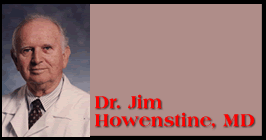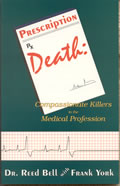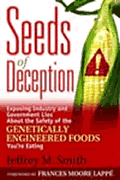Other
Howenstine Articles:
Use of CoQ10
to Treat Malignancies
Why You Should Avoid Taking Vaccines
DOES ASPIRIN PREVENT HEART ATTACKS AND STROKES?
By Dr. James
Howenstine, MD.
April 21, 2004
NewsWithViews.com
Forty million pounds of aspirin are produced in the United States each year (200 tablets for every man, woman and child in this nation). Salicin is a natural substance produced from white willow bark. This substance (salicin) has important analgesic and anti-inflammatory benefits and does not cause the bleeding problems related to the synthetic chemical acetylsalicylic acid (aspirin). The use of aspirin has become widely accepted in the United States as an important measure to prevent heart attacks and strokes. Estimates suggest that 20,000,000 persons are taking aspirin daily for prevention of vascular accidents. The evidence upon which this decision to recommend aspirin was made is not very solid.
Millions of patients with heart attacks, strokes, angina pectoris, diabetes and risk factors for vascular disease have been encouraged by their physicians to take aspirin to prevent heart attacks and strokes. Four early studies using aspirin to prevent heart attacks had shown no benefit (British Medical Journal 1974 vol. 1 p. 436, Lancet Vol. 2 p. 1313, R. Levy JAMA Feb 15, 1980, R. Peto British Medical Journal 1988 vol. 296 pg. 313-6). Then along came a study on U.S. physicians which used Bufferin (aspirin and magnesium). This study showed no reduction in fatal heart attacks and no improvement in survival rate but there was a 40 % decrease in the number of non fatal heart attacks. The magnesium was ignored and there was a prompt extensive institution of aspirin for prevention of heart attacks. The benefits of magnesium in treating heart disease include the well known decrease in ischemic heart disease and sudden death found in communities drinking hard water (magnesium containing), powerful prevention of platelet clumping (clot prevention) known to be caused by magnesium, strong blood vessel dilating properties of magnesium, and effective action to block dangerous heart rhythms in persons taking magnesium. The decrease in number of heart attacks probably resulted from the magnesium in Bufferin.
Aspirin inhibits the enzyme cyclooxygenase resulting in a decrease in the output of the platelet aggregating factor thromboxane A2. This beneficial effect appears to be completely offset by aspirin's inhibition of prostacyclin which is a very effective inhibitor of platelet aggregating. In addition aspirin blocks the enzyme delta 6 desaturase (D6D) which converts linoleic acid to gamma linoleic acid (GLA). Gamma linoleic acid normally is then converted into prostaglandin E 1 which has antiinflammatory properties and appears to have an important role in preventing arteriosclerosis... This enzyme delta 6 desaturase (D6D) can not be made by most diabetics and failure to produce prostaglandin E1 is believed to be the reason diabetics have devastating arteriosclerosis. The use of Borage Oil or Evening Primrose oils bypass this blockage to gamma linoleic acid formation as both these substances contain significant amounts of gamma linoleic acid. Diabetics and other patients with arteriosclerosis might be greatly aided by taking 500 mg. to 1 gram of borage oil twice daily (found in health food stores).
The inhibition of prostacylin and blockage of the production of delta 6 desaturase caused by aspirin affords an explanation for a major research study from Canada which showed that 40 % of persons taking chronic aspirin actually demonstarted an increased[1] risk of both stroke and heart attack. Another serious problem caused by aspirin is a significantly increased risk of macular degeneration with blindness and a 44 % increased risk of cataract formation.
Daily intake of aspirin also carries with it a significant risk of gastrointestinal bleeding. For this reason the use of nattokinase, cucurmin (tumeric), fish oil and bromelain offer an effective less dangerous method of blocking excessive clotting.
Studying the progression of arteriosclerosis is as exciting as watching paint dry but the prostaglandin E1 is known to reduce inflammation and block platelet aggregation and clotting. These qualities could help prevent progression or perhaps reverse arteriosclerosis. Long term use of borage oil, which is less expensive and contains more GLA than evenimg primrose oil could help other patients with severe arteriosclerosis.
A most important and exciting study of aspirin in preventing vascular clots was the European Stroke Prevention Study (ESPS). In this study aspirin was given at the same dose as previously (1 gram daily) and dipyridamole (Persantine) was given at a dosage of 75 mg. three times daily. Dypridamole is known to reduce platelet aggregating but has no effect on prostacyclin. There were 1289 patients in the study who had incurred a stroke or an episode of impaired blood flow to the brain (TIA). One half received a placebo. The results were published in the December 12, 1987 issue of Lancet. Fatal strokes were reduced by one half. Deaths from heart attack were decreased by 38 % and deaths from cancer were reduced by 31 %. No one had ever previously reported lower cancer death rates from aspirin therapy but dipyridamole may have the ability to prevent tumor cells from being able to become established when they land on small fibrin clots located in blood vessels. Additionally, Dr. Eva Bestida of the University of Barcelona has discovered that dipyridamole inhibits the growth of many tumor cells by affecting thymidine, adenosine and uridine all substances needed for cancer cells to multiply.
Dipyridamole may cause a few patients to note dizziness, headaches, and abdominal discomfort initially but these symptoms often disappear with time. The bleeding and ulcers seen with aspirin do not occur. We think that all persons with vascular disease (heart attack, angina, diabetes, stroke, gangrene, hypertension and risk factors for vascular disease, increased C reactive protein , high sedimentation rates, elevated fibrinogen, increased homocysteine, high LDL cholesterol and strong family history of vascular disease) might want to stay on dipyridamole permanently taking 225 or 300 mg. daily. This drug was developed by Boehringer Ingelheim and is not actively marketed as the patent has expired. Your physician should be able to help you obtain this therapy.
Well Recognized Hazards of Aspirin Therapy
In addition to the previously mentioned risks of bleeding and ulceration of the gastrointestinal tract there are other significant risks from aspirin therapy:
-
Aspirin did decrease new non-fatal heart attacks in a subgroup of males with normal blood pressure (those with elevated blood pressure had an increased risk of serious bleeding). There was no decrease in the death rate in these males and no decrease in strokes was found in the aspirin taking males. These males did have an increased risk of a hemorrhagic stroke which can be a disastrous occurrence.
-
Recently an increased risk of pancreatic cancer has been uncovered in a long term study of 88,378 female nurses. Nurses taking 2 aspirin daily for 20 years had a 58 % increase in pancreatic cancer[2] compared to those taking no aspirin. Pancreatic cancer has been steadily increasing in frequency to a position where it is now the fifth leading cause of cancer death. The survival rate of this cancer is less than 5 % in 5 years.
-
Regular use of aspirin is linked to an increase in the leading cause of blindness in the elderly- macular degeneration. There is also a 44 % increase in the most common cataract (posterior subcapsular cataract) in persons who have taken aspirin for 10 years.
-
The use of aspirin and other nonsteroidal anti-inflammatory drugs are a major cause of acid reflux[3] into the esophagus. This produces heartburn, chest pain, ulceration of the esophagus and eventually cancer may appear in the irritated esophagus. Persons with acid reflux often develop asthma.
-
Aspirin has long been known to directly trigger asthma attacks with current estimates that 20 % of asthma attacks are induced by aspirin. These persons experience nasal and upper airway congestion within 30 to 180 minutes after taking aspirin. Fifty percent of those with aspirin induced asthma have a severe form of asthma that requires continuous use of cortisone. Nasal polyps are common as is facial swelling. Stopping aspirin resolves the problem.
-
Researchers from Tel Aviv Medical Center have recently discovered that taking 75 to 325 mg. of aspirin daily caused deterioration of kidney function[4] in 72 % of 100 elderly patients. Three weeks after stopping aspirin residual kidney damage had not completely subsided. Adverse effects of aspirin on prostaglandin production explain these results.
-
Aspirin and other nonsteroidal antiinflammatory NSAID drugs can injure the liver. This is magnified in persons who use alcohol and it is common to see patients experience gastrointestinal bleeding and liver failure after 3 or more alcoholic drinks when combined with aspirin and or NSAID therapy. Persons who take NSAID or aspirin regularly may develop liver enzyme damage that disappears when aspirin and NSAID therapy is stopped.
-
Many gastrointestinal problems, ulcers, and anemias are due to aspirin.
-
Ringing in the ears, hearing loss, allergic reactions, vomiting, diarrhea, dizziness, and hallucinations can appear after aspirin therapy.
-
Aspirin is a poison[5]. The intake of 10 to 30 grams of aspirin can be fatal. Deaths directly related to aspirin usage are estimated to range from 7,600 to 14,000 annually in the United States.
Natural salicylic acid can provide wonderful health benefits. This is found in fruit and vegetables and persons who increase their intake of fruit and vegetables are the beneficiaries of decreased cardiovascular disease. Katherine Tucker, professor of nutritional epidemiology at Tufts University, states" The relationship between cardiovascular disease and prevention in epidemiological studies is stronger for the intake of fruit and vegetables than for any kind of mineral or vitamin supplement." Vegetarians (37 Buddist monks) and 39 non vegeatarians were studied by Scottish researchers Dr. James Lawrence and John Peterson. Blood levels of salicylic acid[6] were higher in these monks than persons who were not vegetarians but most did not reach the levels found in persons taking 75 mg. of aspirin daily. Of great importance persons who are receiving their natural salicylic acid from fruit and vegetables did not show any anti-clotting problems[7] that cause gastrointestinal bleeding and hemorrhagic strokes. This means that preventing arteriosclerosis with food salicylic acid occurs without bleeding problems.
Persons in France eat rich fatty meals but their red and white wine contain salicylic acid which may explain why their incidence of cardiovascular disease is well below U.S. levels. The incidence of cardiovascular disease in persons eating the Mediterranean diet is lowered by 30 %. This diet probably decreases the inflammatory reaction in arteries which is thought to play an important role in causing arteriosclerosis. C Reactive Protein levels, which act as a good indicator of impending cardiovascular events, are decreased by the Mediterranean diet according to Dr. Panagiotakos of the University of Athens.
Foods that are heavily cooked increase CRP levels[8] while lightly cooked or raw foods decrease CRP levels. Recently elevated CRP values have been shown to increase the risk of developing colon cancer.[9] The increasing incidence of arteriosclerosis could be produced by the falling levels of natural salicylic acid found in the foods now eaten in our nation. Not only are we not eating enough fruits and vegetables as a nation, but the salicylic acid in these healthy foods has probably been steadily declining Commercial soup prepared from organic vegetables contains six times more salicylic acid[10] than non-organic soup. Plants produce salicylic acid to protect themselves from pests and disease. Prior to use of pesticides only the hardiest plants survived. The quantity of resveratrol, an important nutrient in grapes, is reduced by 70 % when grapes are sprayed with fungicides .
On balance, I think the negatives of aspirin outweigh its positive effects. Effective anti-inflammatory properties can readily be obtained from the enzyme bromelain found in pineapple. Bromelain is quite effective in relieving the pain and inflammatory reaction of rheumatoid arthritis with a dosage of 2,250 mg. taken twice daily between meals. Enzymes do not cause side effects no matter how high the dosage goes. This should work quite well to counter the inflammatory reaction seen in arteriosclerosis.
Footnotes:
1,
Opthalmology 98; 105:1751-1758
2,
J Nat cancer Inst 04:96(1):22-8
3,
Am Assoc Pharmaceutical scientists Nov 5, 1999
4,
Am J Med 03: 115(6): 462-466
5,
BMJ 00;321:1170-1171
6,
J Clin Path 01; 54:553-555
7,
J Lab Clin Med 84;103:869-877
8,
Proc Nat Acad Sci 02; 15596-15601
9,
JAMA 04; 291:585-590
10,
European J of Nutr Vol. 40:289-292
© 2004 Dr. James
Howenstine -
All Rights Reserved
Dr.
James A. Howenstine is a board certified specialist in internal
medicine who spent 34 years caring for office and hospital patients.
After 4 years of personal study he became convinced that natural
products are safer, more effective, and less expensive than
pharmaceutical drugs. This research led to the publication of his book
A Physicians Guide To Natural Health Products That Work. Information
about these products and his book can be obtained from amazon.com and
at www.naturalhealthteam.com
and phone 1-800-416-2806 U.S. Dr. Howenstine can be reached at jimhow@racsa.co.cr
and by mail at Dr. James Howenstine, C/O Remarsa USA SB 37, P.O. Box
25292, Miami, Fl. 33102-5292.
"Aspirin is a poison. The intake of 10 to 30 grams of aspirin can be fatal. Deaths directly related to aspirin usage are estimated to range from 7,600 to 14,000 annually in the United States."






